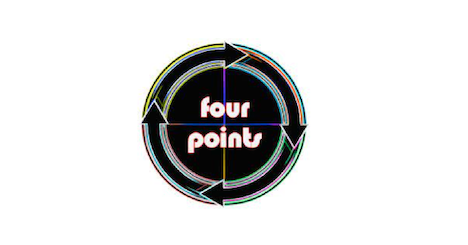Imagine a Great River, Flowing Free
Writers on the Range
This article was originally published by Four Points Press on February 7, 2022.
Some environmental groups and water honchos have sponsored a “Rewilding of Glen Canyon” contest, with the winner getting $4,000 “and counting.” The contest’s goal is to reconnect the Colorado River above and below a dismantled dam, to restore the beauty of a glorious place now submerged by Lake Powell — now just 26% full.
The usual suspects make up the rewilding sponsors: former Bureau of Reclamation Chief Dan Beard and Richard Ingebretsen’s Glen Canyon Institute. There’s also Clark County, Nevada Commissioner Tick Segerblom; Save the Colorado’s Gary Wockner; and nature photographer John Fielder. Great Basin Water Network and Living Rivers are co-sponsors.
“Rewilding” is hardly a new concept. In 1996, draining Lake Powell was ballyhooed by David Brower and the Sierra Club, so much so that Congressional hearings were held, though mostly to denounce the very notion.
“Circus atmosphere” is how one observer described the packed hearings. Colorado Republican Sen. Ben Nighthorse Campbell went all the way over to the House to say, “This is a certifiably nutty idea,” reported Ed Marston in High Country News.
It was the Glen Canyon Dam’s heyday as cheap and plentiful electrical energy poured out of its eight hydro turbines. The 5-billion-kilowatt hours of power it produced each year was enough to power 650,000 homes. You could say that the Southwest’s building boom was enabled by cheap electricity that made air conditioning routine.
The biggest opponents of plug-pulling 26 years ago were water managers from the Upper Basin states of Utah, Colorado, New Mexico and Wyoming. They considered Lake Powell their “savings account” to ensure compliance with the 1922 Colorado River Compact. Other opponents were the 3 million annual visitors to the reservoir, appalled at the mere suggestion of losing southern Utah’s flatwater paradise. Houseboat shares, for example, are passed down generationally like heirlooms.
Now, rewilding is back for consideration, and while the contest is fuzzy on details — see www.rewildingcoloradoriver.org — its goal is crystal clear: How do we pop the cork on the 710-foot-tall concrete and steel structure holding back Lake Powell, the artificial 186-mile-long lake rimmed by sandstone cliffs?
As the West faces increasing aridity, rewilding advocates see the Bureau of Reclamation, the agency that built and operates the dam, on its heels. Last year, it shifted water in a game of musical chairs, draining upstream reservoirs in Colorado, Wyoming, and New Mexico, to shore up Lake Powell. The water shuffle was barely enough as water levels in the reservoir plunged 50 feet.
Meanwhile, big challenges face the empty-Lake Powell crowd. More than 1,000 dams have been removed throughout the country, and nature seems to start healing the land quickly. But draining Lake Powell with existing water outlets is impossible: The lowest diversions are the so-called “river outlet works” at 3,370 feet of elevation, which is still 237 feet above the canyon floor.
To make a river wild, it has to flow fast, at grade. Yet at grade is where the rebar-reinforced, 300-feet base of the dam shoulders hundreds of millions of tons of fine sediments behind it.
Drilling this beast would require advanced engineering and construction techniques. Then, releasing water through the hole is akin to popping a giant water balloon without getting a face full of sandy water.
Forty years ago, it was a wetter world, says commissioner Tick Segerblom, an ex-river guide and 4th generation Nevadan. “The dam was nearly overtopped, lost in spring floods, and now it’s nearly drained.” He points to the damage the dam causes as sandbars disappear in Grand Canyon downstream and silt builds up behind the dam.
If there was ever a time to consider this radical rewilding notion, it’s now. A free-flowing Colorado River, says the Glen Canyon Institute, would still be a major tourist attraction, and Segerblom sees Page, Arizona, becoming the gateway to a new place called Glen Canyon National Park.
Restoring a wonder of nature — why not imagine it? A solution would have pleased David Brower, who regretted not fighting the dam. “Glen Canyon died,” he lamented in a Sierra Club book, “and I was partly responsible for its needless death.”
Perhaps this contest cracks the door to rebirth.
